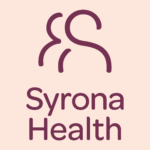
Creasphere Insights – Syrona Health
Syrona Health has developed a digital solution to better cope symptoms and causes of Endometrioses thereby helps millions of women. We met with Chantelle Bell, Co-Founder of Syrona Health, to discuss their views on the condition and the important role they are playing.
Chantelle, can you think of any reason why Women’s Health has been overlooked by different stakeholders for such a long time?
Women’s healthcare has been historically overlooked as women have not been included in many key research studies. When researchers were asked to justify those decisions in the 1940s and 1950s, they blamed it on women’s hormones, claiming that females were more difficult to study because of menses and therefore should be left out of the research equation entirely.
It all stems from research. There is a growing gender health gap when it comes to our understanding of how reproductive and gynaecological conditions such as Endometriosis manifest. Our understanding of such conditions is very limited which makes it difficult to diagnose and treat which results in millions of women left with a chronic condition and limited options when it comes to treatment.
Many women’s healthcare conditions often manifest from when a person is in their teenage years and have just started their menses. Many women are told that their pain and their symptoms that they experience are normal by society and the healthcare system so often suffer in silence or when they are outspoken, they’re often dismissed. It’s time to start educating young people, primary care physicians and society on women’s healthcare topics such as PCOS, Endometriosis and the symptoms associated with each to help identify and treat these conditions early.
We believe it essential to invest in research and new innovative solutions to help diagnose, treat and manage women’s healthcare conditions. As a company we’ve made it our duty to participate and engage with research within this space to help the future generation of women who may go through such a condition and to reduce the pain burden worldwide.
Our app SORA allows users to not only take a digital diary of their symptoms to self-advocate for their care but we also link users up with care physicians such as gynaecologists and endocrinologists who are in turn able to refer or treat as appropriate. We increase access and reduce timelines to care.
What kind of treatments, besides surgeries have you found that are helpful for Endometriosis and that you would recommend to others?
Although there is no cure for Endometriosis, there are certain non-hormonal options that have been reported to help reduce some of the key symptoms surrounding Endometriosis. Each individual is different so what may work for one person may not work for another but here are a few techniques which have been thought to be helpful for those with Endometriosis:
1. Exercise
We are beginning to understand the role of the musculoskeletal system in endometriosis pain. By optimising your muscle balance, joint mobility, fitness and posture it seems we can improve people’s experience of pain, which is also true in other pain conditions
Pelvic Exercise has been helpful for many with Endometriosis.
- Stretching Exercises are helpful as muscles can become tight and painful because of both posture, which may be in response to pain generated from endometriosis, and overuse, like other muscles, become weakened requiring these muscles to compensate.
- Spinal Mobility Exercises help to optimise the function of muscles surrounding our pelvis and relieve symptoms of lower back pain
- Control Exercises help to build core muscles that support the pack and pelvis. It is common that people who experience chronic pelvic pain are weak in this muscle and therefore overcompensate in other areas
- Strengthening Exercises Muscles can become weakened in response to posture, pain and inactivity. Strengthening the pelvic muscles helps to rebalance control, reducing the body’s need to compensate in other areas.
2. Nutrition
Diet is a leading risk factor for many chronic diseases. With Endometriosis it has been suspected to be highly estrogen-dependent and the purpose of hormonal treatments is to decrease the endogenous ovarian production of estrogens.
In clinical trials, reduced fat intake and increased fibre intake reduce blood estrogen concentrations and increase SHBG concentration (therefore, reducing estrogen activity).
There has been shown to be a link with red meat intake and endometriosis in case-controlled studies too
The higher fibre content of plant-based diets can also lower blood insulin levels. This is important due to insulin’s agonistic effects on estrogen production and endometrial cell proliferation. Some studies have suggested that oxidative stress may also contribute to the disease process, providing a rationale for antioxidant-rich diets (those emphasizing vegetables and fruits).
These findings suggest the value of a low-fat, plant-based diet as a means of maximising fibre and antioxidants and minimizing fat, saturated fat, and cholesterol. Such a diet has proven efficacy for functional dysmenorrhea (painful menstrual periods – a common symptom of Endometriosis) but has not yet been tested for endometriosis.
3. Stress Relief
People with endometriosis have significant emotional distress; however, the contribution of stress to the pathophysiology of Endo remains unclear.
Finding ways to manage stress — whether it’s through yoga, meditation, or by simply carving out time for self-care — can help you minimise Endometriosis symptoms. It may also be helpful to see a therapist who can offer tips and techniques for dealing with stress.
4. Alternative therapies
Although the scientific evidence is yet to be produced to support the use of alternative therapies. Many people with Endometriosis find relief from their symptoms through
- Acupuncture
- Herbal medicine
- Ayurveda
- Massage
- Tens Machines
Please do speak to your physician before trying new alternative therapies.
Chantelle and Anya – what is your story? How did you come to found Syrona Health?
Anya Roy and I met at Cambridge University where we were both studying Bioscience Enterprise. Our personal negative experiences with gynae health care shaped our vision to create a patient pathway that would be kinder, well-integrated and more evidence-based than the current public health offering.
Our long-term vision is to close the medical gender gap through research activities. This will unlock the potential to generate new biological knowledge, discover new drugs and treatment modalities and allow better, female focused clinical trials.
We envision Syrona to be the go-to end-to-end platform for those with chronic gynaecological and uterine conditions given the personalised recommendations, reduction in diagnosis time, ease of use and the cost-effectiveness of the service.

About Syrona Health
Syrona is an evidence-based digital screening and therapeutics platform for women’s health. Syrona employs a portfolio approach to women’s health to be one’s female health companion, for life. It follows the patient’s pathway by screening patients for women’s health conditions, allowing them to directly book online consultations with experts such as gynecologists and nurses; these consultations lead to a marketplace for treatment options and condition management alongside curated content and community.

